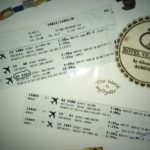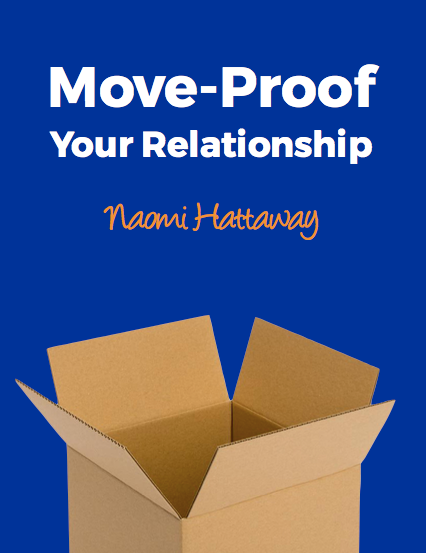“Have the courage to rise from the challenges of life like a phoenix from the flames or you’ll get lost in the ashes of despair, pain, and regret.” ― Nanette Mathews
Survive-Cope-Expand-Thrive
As the wife of a neurosurgeon in a region of Italy known for adventure tourism, I often hear the kinds of stories that make most people move to get ducks in order before their next trip: a bike accident during their 50th wedding anniversary trip across Europe; a new college graduate celebrating with his parents, falls while rock climbing in the Alps; a toddler bucks off his sister’s shoulders at the Verona airport and falls to the granite floor head-first; an American teenager on holiday with her German grandparents is struck by a car at Lake Garda. They will all live through these ordeals, but life will be forever altered.
From the outside looking in, these situations seem emotionally and logistically unmanageable, and yet when I listen, I hear something unexpected. Despite long, arduous hospitalizations, language barriers, financial strains, and lack of emotional support, these travelers and expats find allies and create temporary homes. They research. They accept kindness from strangers. They take active roles in their own healing process. They trust. They push through and persist. They grow, even bloom, in unimaginable ways.
I am fascinated by how people get through hard things; the way they go from just surviving, to figuring out ways to cope, then taking the step beyond coping where growth is born and life expands, like the wings of a phoenix.
When I listen, I am reminded that courage and resourcefulness are natural, human qualities when survival is at stake. Whether we are the patient or a loved one, we all come to the table with traits, habits, mindsets, experiences and perspectives that help us cope, for better or worse, with the ambiguity and unique challenges of traveling abroad with a health condition.
The following story merges two separate interviews, offering both partner and patient perspectives. Healing doesn’t happen in a vacuum; it is a labor of love on all fronts.
Accelerated Dating
Holding three passports and bouncing regularly between continents for work, he is accustomed to traveling with a hefty international insurance policy. He must. Living vigorously with an autoimmune disease requires vigilance and preparedness.
She, too, is a multiple passport holder, having lived between cultures her entire life. As a researcher and writer, she is quite happy staying behind the scenes. Shy, she calls herself, but I know her to be lion-hearted and fiercely articulate in multiple languages. Both nurturers, scholars, and creators of sorts, they are open to new experiences. This one, however, pushes the limit.
Between work-related travel, parenting, and the ocean between them, there aren’t many opportunities to take time off together. They manage to steal a weekend away while he is in town for business. A little over an hour from her home base, they explore a Swiss city they’ve never visited together. He follows his usual self-care regimen, but something unexpected happens. He believes he’s developing an infection and stops in a local clinic to get antibiotics.
The next day, the worsening pain and swelling in his leg forces them to the emergency room of a nearby hospital. The instant they reach medical personnel, she becomes his official translator, intercultural liaison, and patient advocate. Soft-spoken and reserved by nature, she must stretch outside her comfort zone. Everything moves quickly; the situation is unexpectedly grave. He is told they may have to amputate his leg to save his life.
No time to connect to her own horror and fear, she remains calm and steady. In these moments, their courtship takes a deeper dive; she gets to know him more intimately than is natural between two people in the beginning of love. In these moments, he must depend on her in ways never expected or planned for.
With good reason, the medical personnel believe a bacterium is quickly consuming his tissue and threatening his life: necrotizing fasciitis. There isn’t time to obtain a full medical history or research other possibilities. Surgery to remove the infected tissue and stop the spread of the bacteria is underway within three hours of their arrival. He goes under anesthesia heavy with uncertainty. And she is left there, in the waiting room, mind spinning, heart wrung out. She is not his ‘next of kin’, but she is his person, his only person within 3600 miles.
When he wakes up, his initial thought is “Holy shit! I’m still alive!” He laughs as he recounts this moment. He still has his leg, but his situation remains critical. The surgeon explains to him that a minimum of four weeks of IV antibiotics and multiple reconstructive surgeries will be necessary before he will be able to leave the country.
He starts evaluating all the information he’s taking in. It ends up looking something like this: five weeks in a foreign medical system, multiple surgeries, body disfigurement, grief, pain, medication, a language barrier, separation from his children, boredom, social isolation, time away from work, and an unknown financial burden. His relief quickly morphs into one single thought: “How do I get through this?”
Healing Mindset and Practices
Like many people living with a chronic health condition, he’s already experienced enough adversity to know how to help himself under usual circumstances, but traveling with an autoimmune disease makes life as an expat even more unpredictable than usual. As soon as he receives information about his care plan and prognosis, he begins taking inventory of his personal capabilities and outer resources.
What has worked for me in the past? What are my strengths? What do I need support with? What do I need to thrive through this?
“I’ve almost died before,” he says. “I’ve experienced great loss.” He goes on to describe the early and tragic death of his father. By not turning away from death and the emotions surrounding it, he gains a greater understanding and acceptance of his own mortality. He describes it, not as an absence of fear, but as a certain hardiness and grit that have carried him through difficult times in the past. This time, he experiences a profound knowing that he will survive. He tells me it is his refusal to “get down” about his situation that elevates him.
When I ask him what imagery he uses to help himself through difficulty, he describes himself as a phoenix, rising out of the ashes again and again, allowing his grief to flow and burn as his life is changed and renewed. When our bodies are assaulted by disease or injury, when we lose vitality in some way, it is a real loss and must be treated as such.
He stresses, “You must allow yourself to grieve.” Grieving is part of the process of building resilience. He allows himself to feel, cry, and express his emotions knowing this process aides his recovery. Without the emotional support of his partner he says he can’t imagine how he’d have gotten through the emotional pieces of his recovery.
Normal emotional and stresses that come with illness or injury are compounded by his being so far from loved ones and by his difficulty communicating with healthcare personnel. He misses his three children and the normal routines they share together. Creating a support system doesn’t happen organically for him in this setting. The language barrier prevents the casual rapport-building that would normally take place between strangers brought together by a common denominator. He misses the simplicity of these types of human connections and consciously searches out other English-speakers within the hospital.
The supportive qualities and practices I hear him describe sound like focus, optimism, curiosity, sense of humor, knowledge of his own body, trust in himself, unwavering perseverance, an ability to connect with people, and a robust meditation practice. He also stresses the great role trust plays in his recovery and interpretation of events. The respect he receives from the medical team, the fact that his doctors value his contributions and perspective as an experienced patient empowers him and increases his confidence in the care he is receiving. Along with the support he receives from his partner, his trust in the medical team becomes the foundation upon which he builds his other coping strategies.
From his hospital bed, he begins researching his condition, treatments and recovery process. Taking a lead role in his own recovery gives him a sense of agency and efficacy. By studying all aspects of his situation, he is able to choose which pieces of his recovery he can control and which he must surrender to the passing of time, his care-partners, and his own body.
Because it is normal for him to telecommute, few work-related contacts know of his situation. He explains how the ability to work from his hospital room is a real benefit to his recovery process because he is able to experience a level of engagement, privacy and normalcy that wouldn’t otherwise be possible.
A mischievous (and sometimes bored) patient, he uses breath control and meditation to lower his heart rate, setting off the monitor alarms and watching the nurses come running. Striking a balance between work and play is just as important in recovery as it is in everyday life!
Self-Care and Emotional Support is Vital
For her, the partner, balancing life inside the hospital with life outside becomes the greatest challenge and vulnerability. Those first few weeks, she spends hours on the road. She stays focused, solid, knowing he is depending upon her in those early days of recovery. It’s a priority for her to be physically present for the sake of continuity, observation, communication, and emotional support. She’s the only person who can see the big picture, who knows what he was like before this assault on his body.
With her effortless German, she must be the one who confronts nurses when something seems to be wrong. He is not able to describe what he is experiencing to the nurses when his blood counts are dangerously off. She pushes through her natural proclivity to avoid conflict because she must, for the sake of his wellbeing. This motivates and fuels her.
In her life outside the hospital, she too is an expat far from close family and friends. “If you are the only caregiver, that is a lot of weight on one person, especially if you have children at home,” she explains. “I would tell more people [about what I was going through] if I could do it over again.” It’s tough, when you are a naturally private person, or introverted, to suddenly share fears and vulnerabilities with people. It’s much harder to sustain your care giving energy when you don’t have a support system nearby.
She replenishes by getting plenty of sleep and practicing yoga.
After the first three weeks, he is transferred to her home city, where she can visit more easily. In terms of building trust and relationship with a new medical team, it means starting over. But, because they both have confidence in the medical care he is receiving, the entire situation is easier to accept this time around.
Healing is Multi-Faceted and Ongoing
Finally, seven surgeries and 4 weeks of IV antibiotics later, he is released to fly back to his other home base, reunite with his kids and continue rehabilitation. He was lucky, he tells me, to have private insurance that covered a private room, healthy food, and the highest quality medical equipment and treatments. He emphasizes the importance of understanding one’s healthcare coverage when living between cultures. Make no assumptions, he says. Every system is different.
Theirs is an ordeal that comes to a bitter sweet conclusion; the treatment was excellent, but later he discovers the original diagnosis was off. In the end, he learns that the disease he has lived with for decades caused a rare reaction to his usual medication, mimicking the symptoms of the tissue-eating disease, necrotizing fasciitis. It seems the initial surgery (and, in turn, those that followed) may not have been necessary.
He describes the occasional pangs of grief he still experiences over the loss of his leg’s full mobility and some regret about the unfortunate, yet understandable misdiagnosis. He lives with these occasional waves of discomfort, but he continues to rise.
She rises too.
Looking back on their shared ordeal, she is now confident in her ability to handle any crisis. She’s seen herself step up with the kind of assurance that is born from trial and tribulation. There is less fear in ambiguity.
To those supporting a loved one through a health crisis abroad, she says, “Be prepared for surprises, try not to make assumptions, and check your expectations.” In other words, nurture your ability to be flexible, be open to the present moment, and ask more questions in order to gain clarity and understanding.
Adaptation is Transformation
Enduring a health crisis or condition overseas means getting creative in designing a healing team, acknowledging that each person involved is having a unique and valid experience, and knowing that an ebb and flow of grief and gratitude is the natural process of healing and adapting.
The process of adaptation is that of dynamic transformation. Through the process of building resilience, we change permanently. It can be uncomfortable, sometimes painful.
‘How do I get through this right now? What has worked before that can be adapted to this setting? What fresh perspective can I take that will aid my healing?’ and ‘What in myself is being strengthened by this situation?’.
As a listener and observer, I’ve come to believe the phoenix lives within us all. She’s there as we explore and nurture the strongest pieces of ourselves. She’s there when we’re at our most vulnerable. She’s there when we brush off the ashes and take flight, expanding the breadth of our reaches, soaring to live again, however differently.
Author: Carolyn Parse Rizzo
Carolyn is a Certified Child Life Specialist, Healthcare and Vitality/Core Energy™ Coach and trainer living in Northern Italy with her multi-cultural, bi-lingual family. Her private practice, Interval Coaching and Consulting, supports international patients, parents, and partners in building resilience through healthcare challenges and change. Prepare, Play, and Persevere! An expressive-arts enthusiast, Carolyn feeds her soul and builds grit by singing vintage tunes in local wineries with a 20 piece big band and practicing her Morning Walk up the foothills of the Alps. Carolyn’s definition of “home”? Home is where you feel like you!









